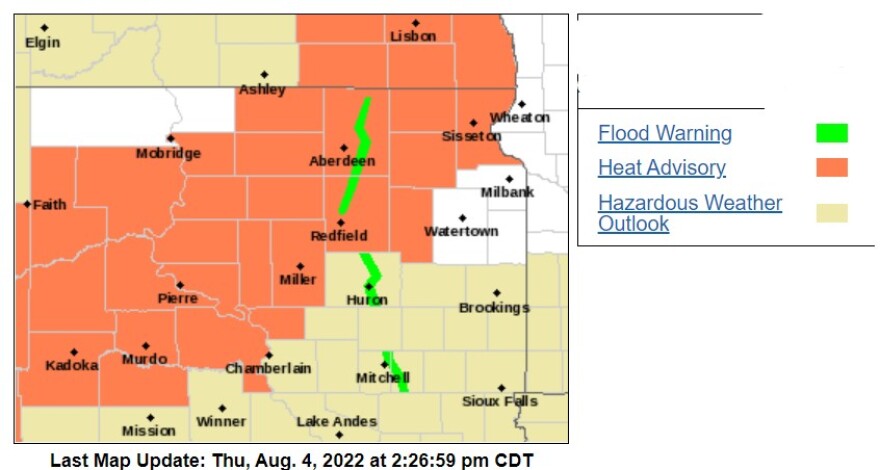This summer has been one of the hottest for South Dakota. Rapid City has broken temperature records, and Sioux Falls recently saw its highest temperature since 1995.
While residents in larger cities are told to stay indoors to try to cool down, in more rural areas, farmers are taking precautions to protect their cattle against heat stress.
When cattle become overheated, they become stressed, which can impact how much they eat and how fast they grow.
"Cattle really prefer temperatures under 60 degrees, that's kind of their optimal," said Warren Rusche, with the South Dakota State University Extension.
Rusche said Midwest farmers have a lot of experience dealing with heat but have to stay vigilant as the weather changes.
"By and large people have pretty good plans in place to try and mitigate that stress as much as they can," he said.
Some of those plans include not handling cattle, changing feeding schedules to either earlier or later in the day, and providing shade. But what works for one farmer might not work for the other.
"Sometimes the cards are just not in your favor and things don't line up in the right place," said Matt Loewe, a Lennox area farmer. Loewe lost cattle in 2016.
"I thought I'd done stuff correctly," he said.

Excess humidity is the biggest challenge.
"It's just like people, nobody likes humidity, neither do cows," Loewe said.
Rusche said the best way to aid against humidity is nighttime cooling.
"It can be hot and humid all day, but if it cools off at night and dries out during the night, those cattle will adapt pretty well, they're able to get rid of the excess heat and tolerate higher temperatures during the day," he said.
This summer, the conditions are far from ideal, but Warren Rusche said the nearly constant South Dakota wind is what limited the risk.
"The 20 to 30 mile per hour winds we've had along with the high temperatures is really what kept us in the clear."
Lighter weight classes of cattle don't retain heat as much, which can help with keeping them cool, according to Loewe.
Preparing for a high heat index is essential.
"Anything we do to help the cattle adapt ahead of time is what is going to reduce loss," he said.
The National Weather Service is forecasting heat advisories across the state today.


